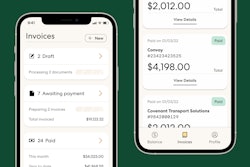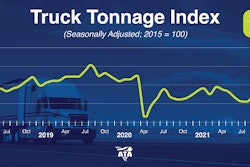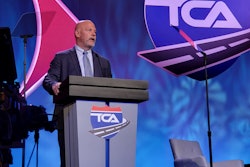Trucking news and briefs for Monday, April 4, 2022:
Biden announces plan to lower fuel prices
In an effort to take pressure off of Americans at the pump and counteract what the Biden Administration is calling “Putin’s Price Hike,” President Joe Biden announced Thursday a two-part plan to increase the supply of oil to bring prices down at the pump.
The first part of Biden’s plan is to increase domestic oil production and release a historic amount of oil from the Strategic Petroleum Reserve.
According to a White House press release, domestic oil production is expected to increase by 1 million barrels per day this year and another 700,000 barrels per day next year. Yet, Biden said oil companies could be doing more.
To encourage more production, Biden urged Congress to make oil companies “pay fees on wells from their leases that they haven’t used in years and on acres of public lands that they are hoarding without producing.”
“Companies that are producing from their leased acres and existing wells will not face higher fees,” the White House added. “But companies that continue to sit on non-producing acres will have to choose whether to start producing or pay a fee for each idled well and unused acre.”
The Administration also announced the largest release of oil reserves in history, putting 1 million additional barrels on the market per day on average for the next six months.
“This record release will provide a historic amount of supply to serve as bridge until the end of the year when domestic production ramps up,” the Administration said.
For the second part of Biden’s plan, the White House announced its commitment to “achieving real energy independence — which centers on reducing our dependence on oil altogether.” To achieve this, Biden will call on Congress to pass his plan to speed the transition to clean energy that’s made in America. Biden will also issue a directive, authorizing the use of the Defense Production Act to secure American production of materials to bolster the “clean energy economy,” the Administration said.
CARB’s HVIP voucher program reopens for requests
The California Air Resources Board's (CARB) Hybrid and Zero-Emission Truck and Bus Voucher Incentive Project (HVIP) reopened to new voucher requests March 30.
Launched by CARB in 2009, HVIP demonstrates the opportunity for first-come, first-served incentives that reduce the incremental cost of commercial vehicles. The project is administered by CALSTART, a national clean transportation nonprofit consortium.
The reopening offers $196.6 million in standard HVIP funding for California-based businesses and other organizations transitioning their fleets to zero-emission vehicles (ZEVs). HVIP vouchers reduce the purchase cost of advanced-technology vehicles to reduce emissions and air pollution, with increased incentives for vehicles in disadvantaged communities or purchased by tribal entities.
In addition to the standard HVIP voucher funds, the program also makes available funding to support the deployment of more than 1,000 zero-emission drayage trucks, 1,000 zero-emission public transit buses and 1,000 zero-emission school buses.
Once the drayage, public transit and public school bus set-asides are fully requested, HVIP will continue to allow standard voucher requests for these vocations while funding is still available.
"Taking steps to collectively build cleaner communities has never been more urgent, particularly in communities hit hardest by truck traffic pollution," CARB Chair Liane Randolph said. "California has always led the charge in putting more of the cleanest heavy-duty clean vehicles on our roads and highways. This important voucher program plays a critical role in supporting Governor Newsom's vision for all medium- and heavy-duty vehicles to transition entirely to zero-emission by 2045."












